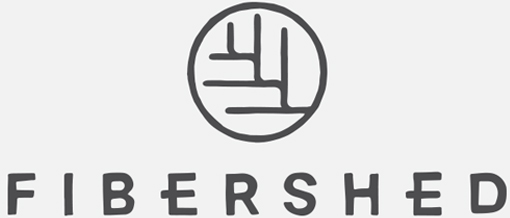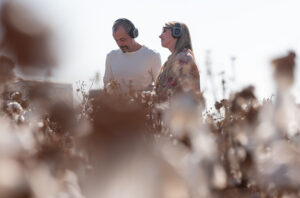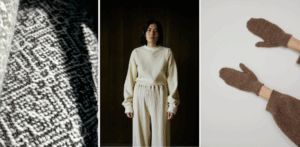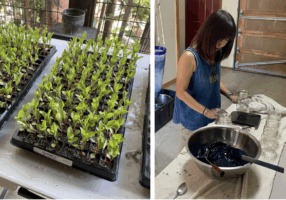Archived Project: Backyard Project Hoodie
The North Face “Backyard Project” hoodie was one of the first bioregional garment projects to be brought to market by a major brand since the North American Free Trade Act (NAFTA) took effect. This hoodie aligns with the ethos of working with what you have in your own backyard, and for The North Face this was about creating as much of this garment within 150 miles of their headquarters in Alameda, California, as was physically possible.
The project directly supported our local fiber farmers, and made every effort to bring manufacturing home from overseas. The growing and sewing took place regionally, and the carding, spinning, and knitting took place in North and South Carolina, because there were no mills in our region that could do this work with short staple fibers (organic cotton).
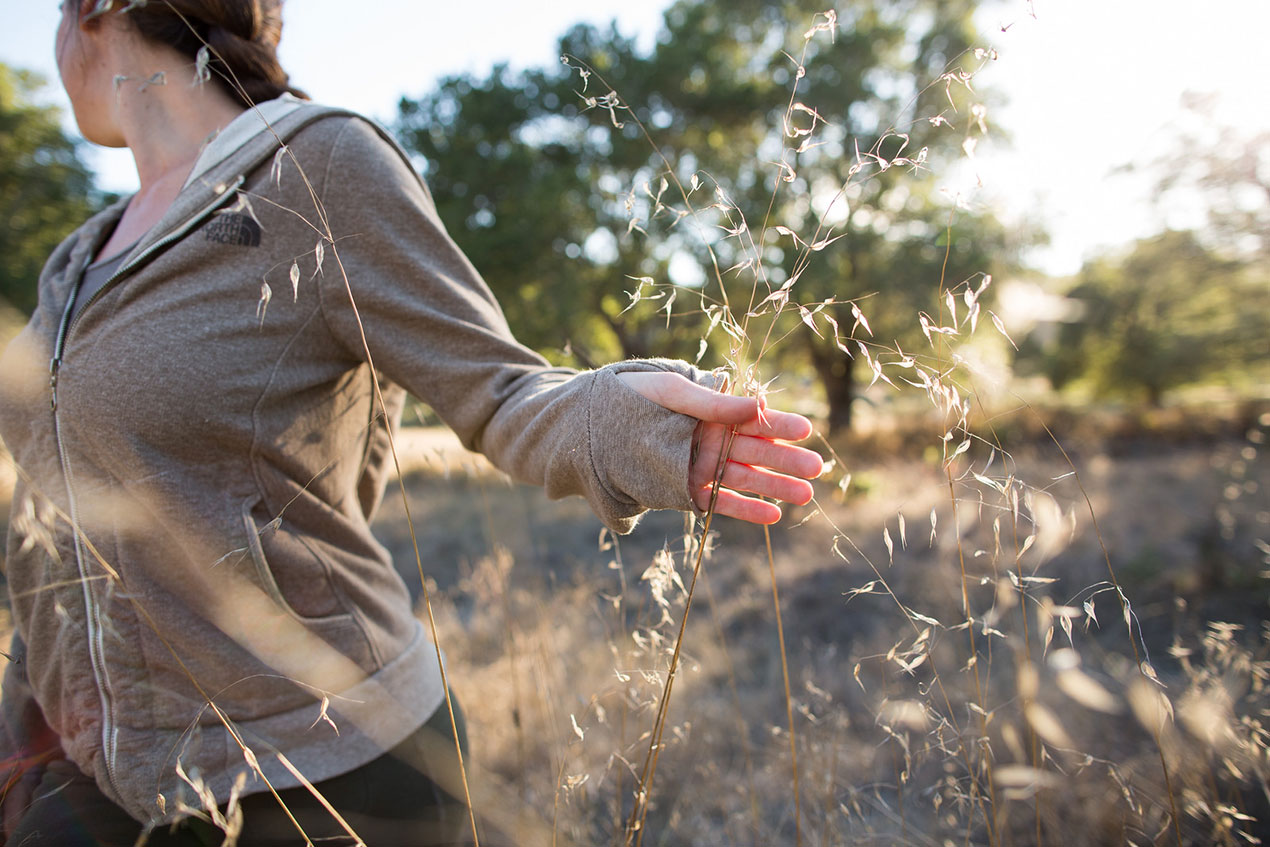
We are so grateful for the existence of the North and South Carolina ‘cotton brain trust,’ which includes multiple generations of cotton expertise that still exist within the USA; this expertise is held by a handful of family-owned milling operations. If we, as a society, care about skilled American manufacturing jobs, we need to ensure that these domestic mills thrive and that their ‘know how’ stays onshore.
The Backyard Project hoodie moved our vision of regional textile systems forward, and expanded our understanding of what it takes to produce essential forms of shelter (finished garments), from fiber grown in our home community. At current, it is commonplace that the fiber grown on small and medium scale farms will never make it to the existing global textile supply chains. It is also difficult to add-value to many of our natural fibers within the United States due the lack clustered on-shore manufacturing systems. The Backyard Project ethos was based upon the value that if we can support our existing mid-scale domestic mills and help them to swell with new business through projects such as ‘Backyard,’ their success will naturally precipitate the need and development for more independent, decentralized milling operations, which in turn will provide small and medium scale farmers increased access to value-addition and regional markets.
Message to the Wearer
The effort to return manufacturing to our backyard requires that we (the wearers) demand locally grown and sewn garments. The most effective way you can help your community regenerate its fiber system (from soil to skin), is to dress yourself from the land you call home.
Message to the Maker
The hoodie is both a garment and a model for future projects. Developing a “microline’’ that is grounded within a community, (from soil-to-skin), provides critical learning opportunities in regard to the benefits and challenges of re-shoring, while generating significant social capital. At the time of its launch, the Backyard Project generated more social media connectivity than any garment produced by The North Face in its social media history. Microlines embody an important set of ‘people and environmental values,’ and while a seemingly small project for The North Face—this microline moved thousands of pounds of fiber through domestic systems, and nurtured a new and vital synergy between farmers, manufacturers, and the technical design and marketing teams. This collaborative project re-sensitized everyone in the supply chain to one-another’s roles and built a new experience of working as a soil-to-skin team. The micro-line is a replicable module that we see as a critical step towards regenerating both our, and many other regional and regenerative fiber economies.
The Backyard Hoodie
- 150 miles grown and sewn (from The North Face headquarters in Alameda)
- 100% compostable garment (minus American-made metal zipper)
- No fossil fuel based dyes
- Sally Fox’s color grown cotton from her certified organic farm (100 miles from San Francisco)
- Gary and Mari Martin are Sustainable Cotton Project Farmers (137 miles from San Francisco)
- Use of the last remaining family owned cotton mills in the Carolinas
- Cut and sewn in the Bay Area
- Supporting over 100 American-based manufacturing jobs
- Supporting independent and family-based farms and value-addition businesses
Thanks to: Farmers Sally Fox and Mari & Gary Martin; cotton milling manufacturers James Watson at North Carolina State University, Mark Leonard at Hill Spinning, and Kevin McCarter at Clover Knits; Kathy Hattori at Botanical Colors; Lydia Lam at All Ways Sewing in San Leandro; with donated time for organizing and technical support from Rebecca Burgess at Fibershed and Lydia Wendt at California Cloth Foundry, The North Face teams—special thanks to Daniel DiSanto, Joe Vernachio, Krystle Moody, and the countless others who ushered this garment to market.
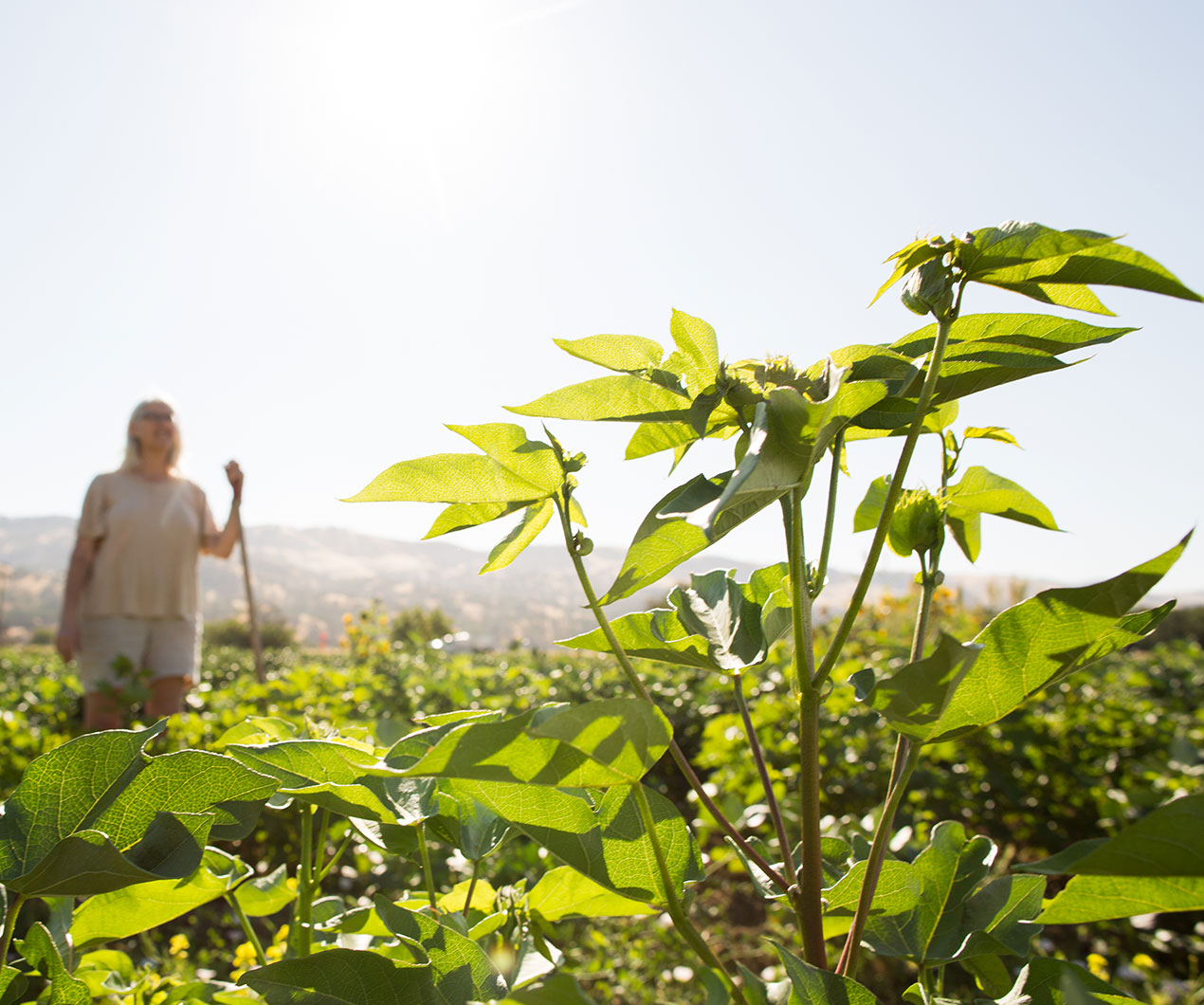
Photos by Paige Green
